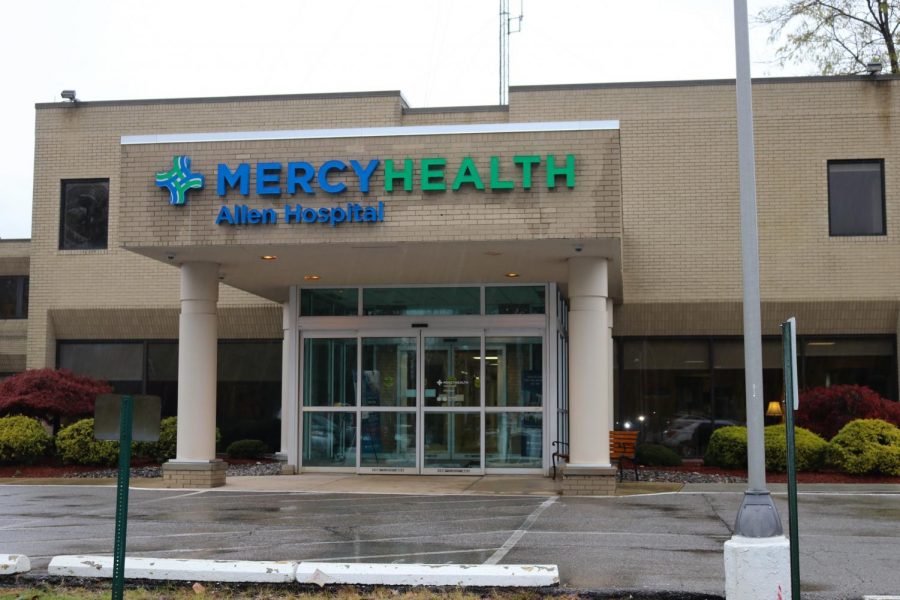Construction Starts on New Mercy Hospital Wing
Mercy Allen Hospital will be begin construction on a new wing, set to open winter 2019.
Community stakeholders, including Oberlin College President Carmen Twillie Ambar and Mercy Health representatives, broke ground on the construction of a proposed medical office building at a ceremony on Friday, Oct. 12.
The new space will house the existing Mercy Health Oberlin Primary Care and Mercy Health Walk-in Care offices, which currently offer College students access to health care outside of Student Health Services’ open hours. Mercy will also use the building to invest in new services such as telemedical care and digital check-ins in order to better coordinate existing health care offerings.
“We, as an organization, continue to be responsive to the needs of the communities we serve,” President of Mercy Allen Hospital Ed Ruthin wrote in a press release shared with the Review. “Community partnerships are what allow us to further strengthen our mission, and this project is another example of collaboration.”
While the new building isn’t scheduled to open until late 2019, the start of its construction marks a milestone in Mercy’s years-long project to consolidate its services.
This project is one of several recent changes in Oberlin’s health care environment. Student Health Services — which receives 4,300 visits during the average school year — has altered its hours and policies in the last few years and started the process of moving into a more central space in Dascomb Hall.
These changes include adding an additional registered nurse to its staff and new policies for mental health crisis hospital referrals.
Although the renovations may improve care, Coordinator of Student Health Marilyn Hamel acknowledges that there have been some difficulties with Mercy in the past.
“We had heard some complaints [of gender identity not being respected], but now they have had training,” Hamel said. “[Student Health Services] has also gone through training with Toni [Myers, former director of the Multicultural Resource Center], and can help students administer hormone shots as well.”
These changes mark the College’s efforts to improve student health services.
“The Office of the Dean of Students has been tasked with student retention; student health falls under that,” said Eddie Gisemba, Assistant Dean of Students. “Some students are forced to leave the College because of wellness [concerns], and probably close to 50 percent are unable to return. If retention isn’t good, that’s going to affect the budget of everything else.”
The College’s health care strategy emphasizes both diagnostic and preventative care. Student Health Services has been working with Mercy to provide additional resources in areas where existing services might be inadequate.
“I’m very excited for the expansion,” Harshbarger said. “I’m hoping that [Mercy] will also bring in specialists that aren’t around in Oberlin. We’ve requested that they provide a nutritionist and expand neurological services.”
The hospital’s expansion marks a trend of renovations, as Mercy Health’s 30,000-square-foot medical center opens on Oak Point Road later this fall.







